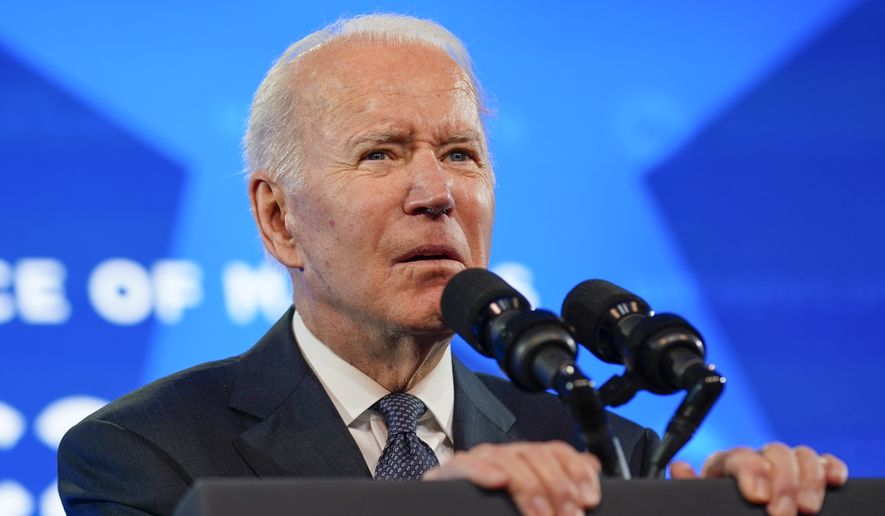Legal advocacy groups are dissatisfied with President Biden’s progress on criminal justice, which they argue has fallen short of the more than 100 changes he promised on the campaign trail, according to a new survey.
In the survey published this month by legal news service Law360, seven of the 13 advocacy organizations polled gave Mr. Biden a grade of “D” or “F” for his criminal justice policy and legislative efforts during his first year in office.
Most of the groups also said they were “dissatisfied” or “very dissatisfied” with his progress. Three groups ranked it “above average” or “very good,” while two groups said it was “average.”
Maritza Perez, director of the Drug Policy Alliance‘s Office of National Affairs, told the news service that Mr. Biden’s poor criminal justice policy decisions have contradicted his campaign rhetoric.
“This is a president who has said that he thinks that drug use is a public health issue and it should not be addressed through the criminal legal system, yet one of the first things that he puts out on criminal justice is legislative text that would essentially put more people under the legal system and in jail and in prison,” she said in reference to his proposal to Congress to regulate fentanyl, a highly addictive synthetic opioid that is 100 times stronger than morphine.
Insha Rahman, vice president of advocacy and partnerships for the Vera Institute of Justice, told the news service that Mr. Biden missed various opportunities to make significant changes, including dispelling the narrative that making changes to the criminal justice system would cause more crime.
“With the rise of shootings and homicides over the past two years, criminal justice reform is facing strong headwinds and opposition from law enforcement, prosecutors and ’law and order’ elected officials,” Mr. Rahman said. “They have seized the narrative to make it seem that arrests, prosecution, courts and incarceration are the only ways to produce public safety.”
Despite Mr. Biden’s campaign vow to reduce the federal prison population, it has increased by roughly 5,000 people since he took office a year ago.
Aamra Ahmad, senior policy counsel for the American Civil Liberties Union, told the news outlet that she has lost hope in the president.
“The easiest issue for him to have tackled coming into office was granting clemency to people who are on home confinement under the CARES Act,” she said. “These were people who were released under Trump administration policies and have a proven track record now that they’ve been released of abiding by the law and the rules of home confinement. If he can’t help those people, then I’m concerned as to who he can help and what policies he will adopt.”
Miriam Krinsky, executive director of Fair and Just Prosecution, told the news service that she still has hope for the president.
“I think [he] is taking seriously the need to reset the legal system and putting people in place in criminal justice positions that are thinking differently,” Ms. Krinsky said.
Ms. Krinsky added that she wants Mr. Biden to begin assessing the more than 18,000 clemency petitions that await review, noting that past presidents typically do not take up clemency requests until later in their term.
“It would be heartening … if this president turned to that much more quickly and supported even broader efforts for taking another look at mandatory minimums and these excessive sentences that came about during an era that we know has not made us any safer or done right by communities,” she said.
• Emily Zantow can be reached at ezantow@washingtontimes.com.




Please read our comment policy before commenting.